Can Dogs Eat Bean Sprouts? A Vet’s Guide
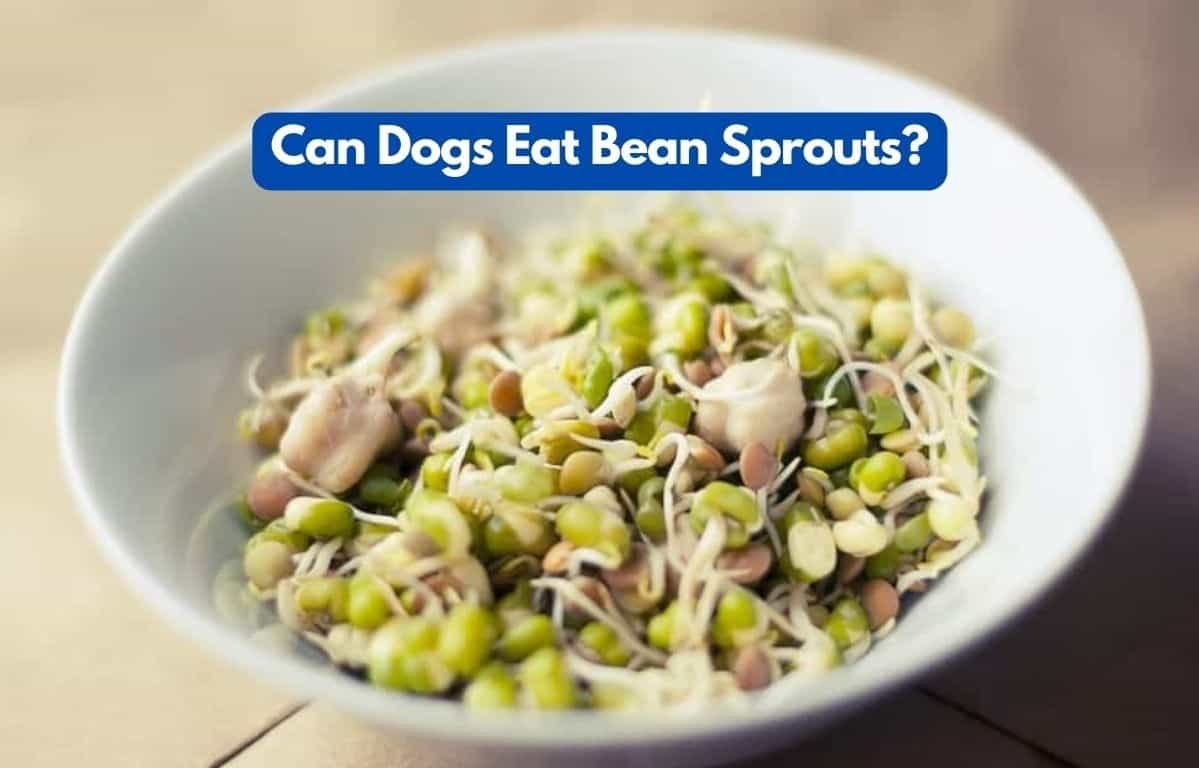
Bean sprouts are a healthy and nutritious food for humans, especially Asians. But can dogs eat bean sprouts too? The answer is yes, dogs can safely eat bean sprouts if you feed them in moderation.
Bean sprouts are a good source of vitamins, minerals, and fiber, and they can help support your dog’s immune system and overall health. The reason for moderation is that too much bean sprouts can cause gas and bloating in dogs.
In this blog post, we will discuss the benefits of bean sprouts for dogs, how to serve them safely, and some tips for introducing them to your dog’s diet.
What Are Bean Sprouts?
Bean sprouts are the young shoots of beans or legumes that have been germinated in water or moist soil. They are usually harvested when they are about 2 to 5 inches long before they develop leaves.
The most common types of bean sprouts are mung bean sprouts and soybean sprouts, but you can also find sprouts from other beans such as adzuki, lentil, chickpea, pea, and alfalfa.
Read also Can Dogs Eat Bok Choy? A Complete Guide With Facts
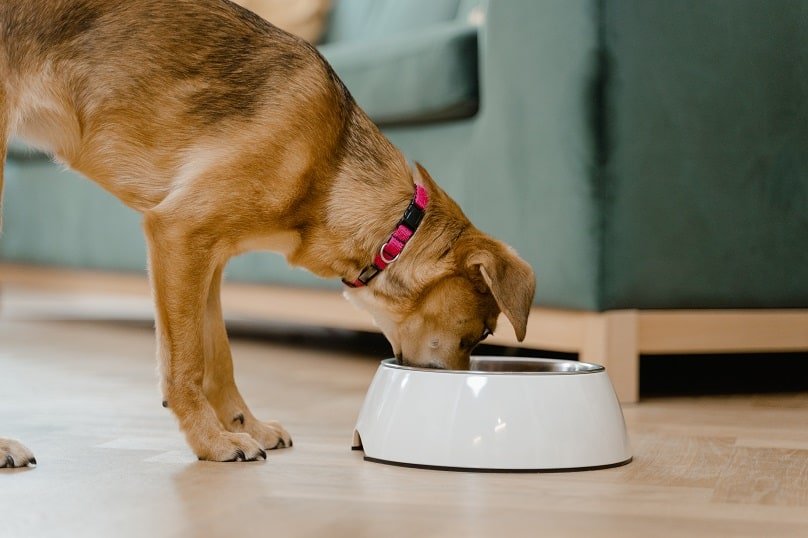
Can Dogs Eat Bean Sprouts? Are They Good for Dogs?
The short answer is yes, bean sprouts are generally safe and healthy for dogs to eat. They contain several nutrients that can benefit your dog, such as:
- Vitamins A, C, B, and E: These vitamins are essential for your dog’s immune system, vision, skin, coat, and metabolism.
- Calcium: This mineral is important for your dog’s bones, teeth, and muscle function.
- Amino acids: These are the building blocks of proteins, which are vital for your dog’s growth, repair, and energy.
- Healthy fats: These fats can help your dog maintain a healthy weight, reduce inflammation, and support brain health.
- Vitamin K: This vitamin is important for your dog’s blood clotting and bone health. It also helps regulate your dog’s calcium levels and prevent kidney stones.
- Iron: This mineral is essential for your dog’s hemoglobin, the protein that carries oxygen in the blood. It also supports your dog’s muscle function, immune system, and energy metabolism.
- Fiber: This is a type of carbohydrate that your dog cannot digest, but it can help improve your dog’s digestive health by adding bulk to the stool, preventing constipation, and feeding the beneficial bacteria in the gut. It can also help lower your dog’s blood sugar and cholesterol levels, and reduce the risk of obesity and diabetes.
Also, read about the Health Benefits of Feeding Dogs Yellow Squash.
Are Bean Sprouts Bad for Dogs?
No, bean sprouts are not bad for dogs, as long as they are fresh, unseasoned, and given in moderation. While bean sprouts are generally good for dogs, there are some potential risks and precautions to consider before offering them to your pet. Here are some of them:
1. Bacterial contamination:
Bean sprouts can harbor harmful bacteria such as E. coli and Salmonella if they are not properly washed or stored. These bacteria can cause diarrhea, vomiting, fever, and dehydration in dogs.
To prevent this, always wash bean sprouts thoroughly before feeding them to your dog or buy them from reputable sources that follow hygienic practices.
2. Choking hazard:
Bean sprouts can be a choking hazard for small or greedy dogs if they are not chopped or cooked well. To avoid this, always cut bean sprouts into small pieces or cook them until they are soft before giving them to your dog.
3. Gas and bloating:
Bean sprouts can cause gas and bloating in dogs because they contain complex sugars that dogs cannot digest. To reduce gas and bloating, introduce bean sprouts gradually to your dog’s diet, start with small amounts, and avoid feeding them with other gas-producing foods.
4. Allergic reaction:
Some dogs may be allergic to bean sprouts or have a sensitive stomach that cannot tolerate them well. If your dog shows signs of an allergic reaction such as itching, swelling, hives, or difficulty breathing after eating bean sprouts, stop feeding them immediately and consult your vet.
5. Overfeeding:
Bean sprouts should not make up more than 10% of your dog’s daily diet. Too much bean sprouts can cause digestive upset or interfere with the absorption of other nutrients in your dog’s food. To prevent this, always feed bean sprouts in moderation and as a supplement to your dog’s balanced diet.
Check this out: Can Dogs Eat Collard Greens?
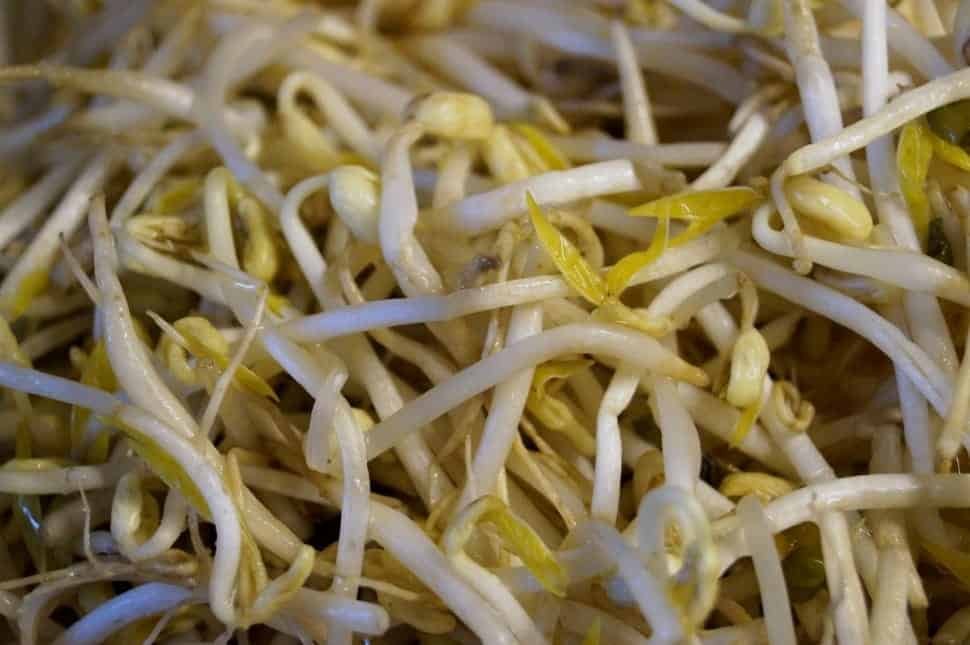
What are the Benefits of Bean Sprouts for Dogs?
Bean sprouts have many benefits for dogs besides providing them with essential nutrients. Some of these benefits are:
- Anti-inflammatory: Bean sprouts have anti-inflammatory properties that can help reduce pain and swelling in dogs with arthritis, allergies, or other inflammatory conditions.
- Antioxidant: Bean sprouts have antioxidant properties that can help protect your dog’s cells from oxidative stress and damage caused by free radicals. This can help prevent aging, cancer, and chronic diseases in dogs.
- Detoxifying: Bean sprouts have detoxifying properties that can help cleanse your dog’s liver and kidneys from toxins and waste products. This can improve your dog’s overall health and vitality.
- Digestive: Bean sprouts have digestive properties that can help improve your dog’s bowel movements and prevent constipation. They also contain enzymes that can help break down food and enhance nutrient absorption in your dog’s gut.
How to Serve Bean Sprouts to Dogs?
There are different ways to serve bean sprouts to dogs depending on your preference and convenience. Here are some tips on how to prepare and feed bean sprouts to your dog:
1. Raw or cooked bean sprouts for dogs:
You can feed bean sprouts to your dog either raw or cooked. Raw bean sprouts have more enzymes and nutrients than cooked ones, but they also have more risk of bacterial contamination. Cooked bean sprouts have less risk of bacteria but also less enzymes and nutrients.
The best way is to lightly steam or blanch bean sprouts until they are slightly wilted but still crunchy. This way, you can preserve most of their benefits while reducing their risks.
2. Feed dogs chopped or whole bean sprouts:
You can feed bean sprouts to your dog either chopped or whole. Chopped bean sprouts are easier for your dog to chew and digest, but they also lose some of their juices and nutrients. Whole bean sprouts are more crunchy and juicy, but they also pose a choking hazard for small or greedy dogs.
The best way is to chop bean sprouts into bite-sized pieces or shred them with a grater or food processor. This way, you can make them more manageable and palatable for your dog.
3. Feed dogs bean sprouts mixed with their food or alone:
You can feed bean sprouts to your dog either mixed with their food or as a separate treat. Mixed bean sprouts can add more flavor and texture to your dog’s food. However, they tend to also dilute the taste and nutrients of their main meal.
Alone, bean sprouts can be a refreshing and healthy snack for your dog, but they also lack the balance and variety of a complete diet. The best way is to feed bean sprouts as an occasional supplement to your dog’s regular food or as a special treat once in a while. This way, you can enhance their diet without compromising it.
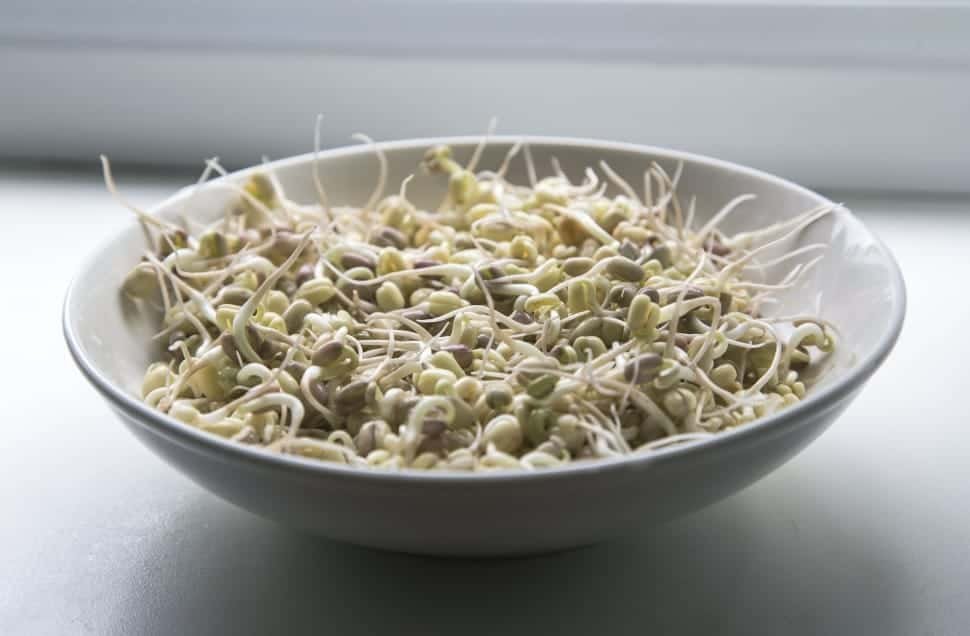
Tips for Feeding Bean Sprouts to Your Dog
If you decide to feed bean sprouts to your dog, you should follow these tips to ensure their safety and health:
- Choose fresh, organic bean sprouts whenever possible. This will help to ensure that the bean sprouts are free of pesticides and other harmful chemicals.
- Wash the bean sprouts thoroughly before serving. This will help to remove any dirt or bacteria that may be present.
- Serve the bean sprouts raw or cooked. Both raw and cooked bean sprouts are safe for dogs to eat. However, cooked bean sprouts may be easier for dogs to digest.
- Start by giving your dog a small amount of bean sprouts and gradually increase the amount over time. This will help to prevent your dog from getting gas or bloating.
- Avoid serving bean sprouts with other gas-producing foods. Some other gas-producing foods include beans, peas, cabbage, broccoli, and cauliflower.
- Make sure that bean sprouts are only a small part of your dog’s diet. Bean sprouts are healthy food for dogs, but they should not be the only thing that your dog eats.
- Monitor your dog’s reaction: After feeding bean sprouts to your dog, you should monitor their reaction for any signs of discomfort, allergy, or illness. If your dog shows any adverse effects from eating bean sprouts, you should stop giving them the sprouts and contact your vet for advice. You may need to adjust the amount, frequency, or type of bean sprouts you feed your dog based on their individual tolerance and preference.
What Types of Bean Sprouts Can Dogs Eat?
There are different types of bean sprouts that dogs can eat, such as:
- Mung bean sprouts: These are the most common and widely available types of bean sprouts. They are greenish-white in color and have a mild and nutty flavor. They are rich in protein, fiber, vitamin C, folate, iron, and manganese.
- Alfalfa sprouts: These are another popular type of bean sprouts. They are green in color and have a sweet and grassy flavor. They are rich in protein, fiber, vitamin K, vitamin C, calcium, and magnesium.
- Barley sprouts: These are a less common type of bean sprouts. They are yellowish-green in color and have a slightly bitter and earthy flavor. They are rich in protein, fiber, vitamin B6, folate, iron, and selenium.
Other types of bean sprouts that dogs can eat include soybean sprouts, lentil sprouts, chickpea sprouts, pea sprouts, etc.
However, these types of bean sprouts may have more lectins and phytates than the ones mentioned above. These compounds can interfere with the digestion and absorption of some minerals in dogs.
Therefore, it is advisable to feed these types of bean sprouts in smaller amounts or soak them overnight before cooking them to reduce their anti-nutrients.
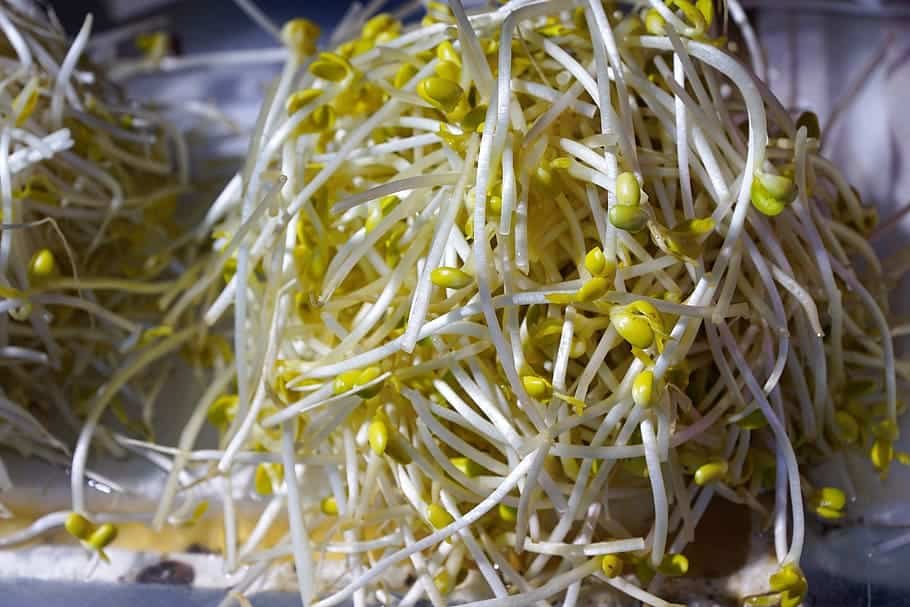
Frequently Asked Questions Related to “Can Dogs Eat Bean Sprouts?
How much bean sprouts can I give my dog?
It is generally recommended to give your dog no more than a tablespoon of bean sprouts per day. This is because bean sprouts are high in fiber, and too much fiber can cause gas and bloating in dogs. If you are giving your dog bean sprouts for the first time, start with a small amount and see how they react.
Can I give my dog cooked or raw bean sprouts?
Both cooked and raw bean sprouts are safe for dogs to eat. However, cooked bean sprouts may be easier for dogs to digest. If you are giving your dog raw bean sprouts, make sure to wash them thoroughly to remove any dirt or bacteria.
What are the benefits of bean sprouts for dogs?
Bean sprouts are a good source of vitamins A, C, and K, as well as fiber. They are also low in calories and fat, making them a healthy choice for dogs on a diet. Additionally, bean sprouts contain antioxidants, which can help protect cells from damage.
Are there any risks associated with dogs eating bean sprouts?
The main risk associated with dogs eating bean sprouts is gas and bloating. This is because bean sprouts are high in fiber. If your dog experiences gas or bloating after eating bean sprouts, you should stop feeding them bean sprouts.
What are some other vegetables that are safe for dogs to eat?
Some other vegetables that are safe for dogs to eat include carrots, green beans, broccoli, sweet potatoes, cucumbers, peas, zucchini, bell peppers, apples, and bananas. It is important to introduce new vegetables to your dog’s diet gradually and in small amounts to prevent any digestive upset.
What are some vegetables that are not safe for dogs to eat?
Some vegetables that are not safe for dogs to eat include onions, garlic, chives, leeks, and avocados. These vegetables can cause gastrointestinal upset in dogs, including vomiting, diarrhea, and even liver damage.
What should I do if my dog eats too many bean sprouts?
If your dog eats too many bean sprouts, they may experience gas, bloating, or diarrhea. If your dog shows any of these symptoms, you should take them to the veterinarian immediately.
Conclusion
Bean sprouts can be a healthy and tasty treat for your dog, as long as they are fresh, unseasoned, and given in moderation. Bean sprouts contain several nutrients that can benefit your dog’s health, such as vitamins A, C, K, folate, iron, and fiber.
However, bean sprouts also pose some potential risks and drawbacks for your dog, such as bacterial contamination, bloating, or allergic reaction.
Therefore, you should always wash and cook the bean sprouts before feeding them to your dog, cut them into small pieces, mix them with your dog’s regular food, and monitor your dog’s reaction. You can also feed your dog different types of bean sprouts occasionally to add some variety to their diet.
We hope this blog post has answered your question “Can dogs eat bean sprouts?” If you have any other questions or comments about feeding bean sprouts to your dog, please feel free to leave them below or contact us through our website.
We would love to hear from you and help you provide the best care for your canine companion. Thank you for reading our blog post and we hope you have a wonderful day with your dog!





